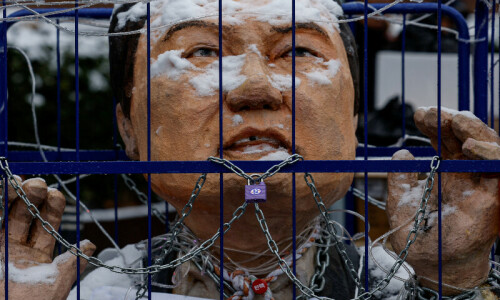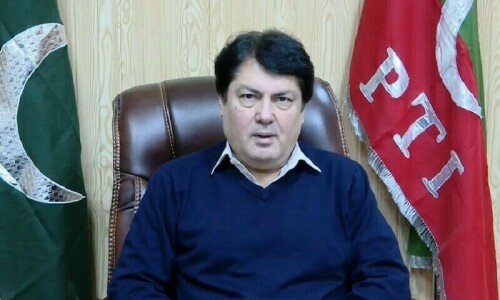
DAR ES SALAAM: As the sun goes down young albino men, normally a persecuted minority here, head eagerly to a sandy roadside patch that serves as a training pitch for Tanzania’s Albino United football club.
In a country where scores of albinos have been gruesomely murdered since 2007 to supply witch doctors who use their body parts to concoct lucky charms, this football club aims to show that albinos are just ordinary people who lack pigmentation.
“The team has managed to make people with albinism very happy, very united. Not only the players, but also other people with albinism outside of Dar es Salaam,” said Severin Edward, the team's programme manager.
“This was not possible earlier.”
Although Dar es Salaam has not been directly hit by the wave of murders that has mainly occurred in and around the northern Mwanza region, Albino United, based in the seaside city, aims to counter the trend throughout the country.
Established in 2008 and initially called Albino Magic, the club changed its name when its founders became wary of parallels with the witchcraft killings.
The club’s ambitions to alter the way people with albinism are perceived are to a certain extent prisoner to its paltry budget.
Their home ground is a dusty field, the goals are made of tree branches and string and many of the players have no proper football boots.
That doesn’t stop 17-year-old Said Seremani, an albino and a winger for the division three club, of dreaming of playing professional football in Europe.
“I believe I can succeed through this club because they look after me,”said Seremani, referring to the occasional donor handout.
But Seremani himself plays barefoot despite risking injuries.
“I have benefitted a lot from the club. I have paid school fees from my allowances and I have been able to travel to other provinces in the country I had never been to before.”
Seremani’s non-albino mother, who raised him alone after being abandoned by the boy’s father, said she was never shocked at giving birth to an albino baby.
“When I gave birth I saw that he was an albino, but I did not take it negatively. I did not find it odd,” she recounted. “I like his interest in football. He began playing as a young boy and he would often eat in a hurry to go and play football.”
Albinism is a genetically inherited condition resulting in the hair, skin and eyes lacking the melanin pigmentation that normally protects from the sun’s ultraviolet rays. In almost all cases, albinism affects sight.
The burning sun in coastal Dar es Salaam, poverty, disease and injuries among the fragile albino squad have often kept away players from regular practice sessions.
Because of the players’ acute sensitivity to the sun, practice can only begin from about 5:00 pm when the sun wanes and a cool breeze comes in off the sea.
Despite the absence of targeted murders in much of southern Tanzania, people with albinism still face discrimination, as highlighted by insults during recent poll campaigns against an opposition candidate who became Tanzania’s first elected albino MP.
Salum Khalfani Bar’wani’s opponent charged that he could not think properly because he was an albino, but the MP-elect hailed his victory as a milestone for Tanzania’s albinos. Albino United player, Fikiri Sultan, said their triumphs on the pitch have surprised many and bolstered their confidence.
“I joined the club because we are despised by society,” said the 28-year-old who was out of action due to an ankle injury.
“Since I joined, those who despised us have been challenged seeing us on television playing against MPs and other clubs. We now also believe that we can do anything.”
At least 58 albinos have been murdered in Tanzania since 2007 according to Under the Same Sun, a Canada-based NGO. Some of the albino body parts are believed to be exported from the country.
Authorities in the east African nation have pledged more protection for the albinos, and since 2009 at least five people have been sentenced to death by hanging for murdering albinos but none has been executed. — AFP













































Dear visitor, the comments section is undergoing an overhaul and will return soon.